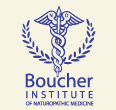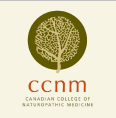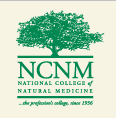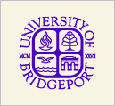
Naturopathic Medicine Defined
Naturopathic Medicine is a distinct primary health care system that blends modern scientific knowledge with traditional and natural forms of medicine. Naturopathic Medicine is the art and science of disease diagnosis, treatment and prevention using natural therapies including, but not limited to:
- Acupuncture, and Oriental Medicine *
- Botanical (herbal) medicine
- Clinical nutrition
- Homeopathy
- Hydrotherapy
- Lifestyle counseling
- Naturopathic manipulation
- Traditional Chinese medicine
- * Only in scope of practice in some states.
Naturopathic Medicine emphasizes disease as a process rather than disease as an entity. The primary goal is to treat the underlying cause of the disease. This approach has proven successful in treating both chronic and acute conditions. Treatments are chosen based on the individual patient, not based on the generality of symptoms.
|
|||
|
In North America, the Naturopathic Medical profession’s infrastructure includes:
Naturopathy is practiced throughout the world and is subject to varying standards of regulation and levels of acceptance. |
Food and plants as medicine
A cornerstone of naturopathic practice holds that food is the best medicine. Many medical conditions can be treated more effectively with foods and nutritional supplements than they can by other means, and with fewer complications and side effects. Naturopathic Physicians often use dietetics, natural hygiene, fasting, and nutritional supplementation in practice. .
Many plant substances are powerful medicines. Where single chemically-derived pharmaceutical drugs may only address a single problem, botanical medicines are able to address a set of symptoms simultaneously, not unlike the complex and multi-faceted nature of the human body. Their organic nature makes botanicals compatible with the body’s own chemistry and can be gently effective with few toxic side effects.
A Naturopathic Doctor as your primary care provider
A Naturopathic Doctor (ND) is a primary care practitioner who seeks to restore and maintain optimum health in their patients by emphasizing nature’s inherent self-healing process. An ND views the individual as an integral whole including the physiological, structural, psychological, social, spiritual, environment and lifestyle factors affecting health. Symptoms of disease are seen as warning signals of improper functioning of the body and unfavorable lifestyle habits.
A Naturopathic Doctor as your complementary healthcare provider
Naturopathic Doctors can also complement and enhance health care services provided by other health care professionals. They collaborate with other branches of medical science and refer patients to other practitioners for diagnosis or treatment when appropriate. NDs provide patients with a truly integrative form of health care.
The scope of practice The current scope of Naturopathic Medical practice includes, but is not limited to:
- Acupuncture and Oriental Medicine Oriental medicine is a complimentary healing philosophy to Naturopathic Medicine. Meridian theory offers an important understanding of the unity of the body and mind, and adds to the Western understanding of physiology. Acupuncture provides a method of treatment which can unify and harmonize the imbalances present in disease conditions, which, if untreated, can result in illness. * Only in scope of practice in some states.
- Botanical (Herbal) Medicine Botanical (also known as herbal) medicines are derived from the whole leaves, roots, stems, etc. of a plant to promote health and prevent and treat illness.
- Clinical Nutrition Clinical nutrition is the study of the inter-relationship between food, and the health and well-being of the body. It incorporates the science of how food and nutrients are processed (digested, absorbed, transported, metabolized, stored, and discharged) in the body, and how these factors may influence health and disease.
- Emergency Medicine Emergency medicine focuses on the diagnosis and treatment of acute illnesses and injuries that require immediate medical attention. As opposed to providing long-term or continuing care, practitioners aim to diagnose a wide array of pathology and emergent conditions and undertake acute interventions to stabilize the patient for definitive care.
- Homeopathic Medicine (Homeopathy) Homeopathic medicine is based on the principle of “like cures like.” It works on a subtle, yet powerful level, gently acting to strengthen the body’s healing and immune response.
- Hydrotherapy Hydrotherapy is a special technique involving bodily temperature change by greatly increasing the blood flow to the skin and the internal organs of the chest and abdomen using water. It acts to stimulate the body’s own healing force to improve recovery from many illnesses, both acute and chronic (including fatigue, arthritis, physical injury, bronchitis, food poisoning, heart disease, influenza and chronic constipation).
- Laboratory Diagnosis and Diagnostic Imaging Laboratory diagnosis is any diagnosis made by a chemical, microscopic, microbiologic, immunologic or pathologic study of secretions, discharges, blood or tissue.
Diagnostic imaging includes all tests that produce images or pictures of the inside of the body in order to diagnose diseases. These tests may use x-rays, sound waves, radio waves, and radioactive waves and particles that are recorded by photographic films or other types of detectors. - Lifestyle Counseling Lifestyle counseling involves the assessment, guidance and monitoring of nutrient intake, exercise and stress management as a means to improve overall health and reduce illness.
- Minor Surgery Minor surgery may include the repair of superficial wounds and removal of foreign bodies such as cysts and other superficial masses.
- Naturopathic Manipulation or Physical Medicine Naturopathic manipulation is a branch of medicine that deals with the prevention, diagnosis and treatment of disease by essentially physical means, including therapeutic physical manipulation of muscles, bones, and spine (as in chiropractic care); massage (as in massage therapy); and exercise. This can also include the use of mechanical devices; the application of heat, cold, electricity, radiation and water; and various injection therapies.
- Naturopathic Obstetrics Naturopathic obstetrics is natural childbirth care in an out-of-hospital setting. It encompasses prenatal and postnatal care using modern diagnostic techniques. The naturopathic approach strengthens healthy body functions so that complications associated with pregnancy may be prevented.
- Pharmacognosy (?) Pharmacognosy is the use of medicines derived from natural origins.
- Pharmacology or Drug Therapy (?) Lifestyle counseling involves the assessment, guidance and monitoring of nutrient intake, exercise and stress management as a means to improve overall health and reduce illness.
- Psychological Medicine (Psychology)Mental attitudes and emotional states may influence or even cause physical illness. Counseling, nutritional balancing, stress management, hypnotherapy, biofeedback, and other therapies are used to help patients heal on the psychological level.Sources: CAND.ca/What Is Naturopathic Medicine? Oregon.gov/Board of Naturopathic Examiners














